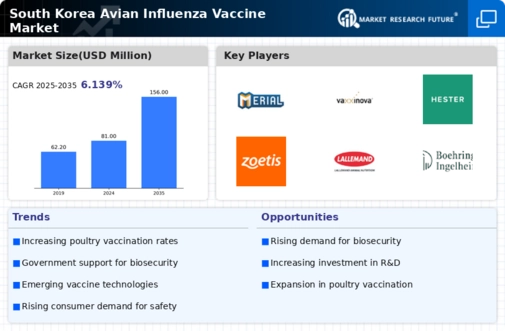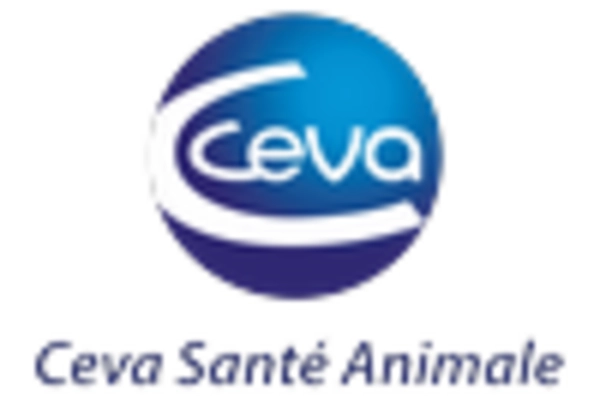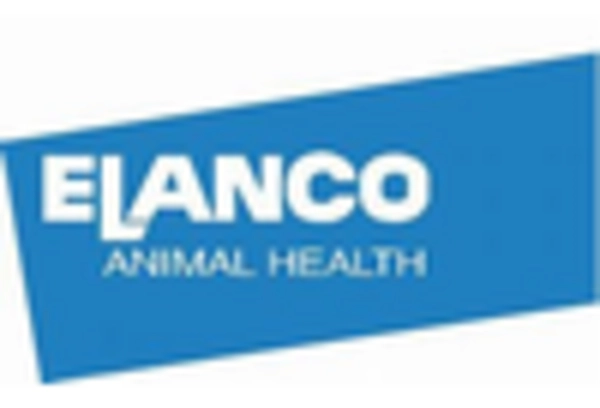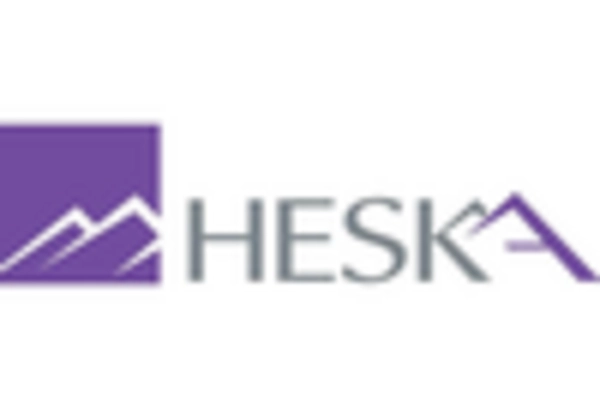Public Health Initiatives
Public health initiatives aimed at controlling avian influenza outbreaks are significantly impacting the avian influenza-vaccine market. The South Korean government has launched various campaigns to educate farmers and the general public about the importance of vaccination in preventing disease spread. These initiatives are likely to increase vaccination rates among poultry, thereby reducing the risk of outbreaks. The government allocates substantial funding for these programs, which is expected to enhance the market's growth trajectory. As awareness of avian influenza's potential impact on public health rises, the demand for vaccines is anticipated to grow, further solidifying the avian influenza-vaccine market's position in the agricultural sector.
Increased Poultry Production
The avian influenza-vaccine market is significantly influenced by the rising demand for poultry products in South Korea. As the population grows and dietary preferences shift towards protein-rich foods, poultry production is expected to increase. This surge in production heightens the risk of avian influenza outbreaks, necessitating the widespread use of vaccines to protect flocks. The market is anticipated to witness a growth rate of around 7% annually, driven by the need for biosecurity measures in poultry farms. Farmers are increasingly recognizing the importance of vaccination as a preventive strategy, thereby propelling the avian influenza-vaccine market forward. The economic implications of poultry farming further underscore the necessity for effective vaccination programs.
Emerging Research and Development
Innovations in vaccine technology are playing a pivotal role in shaping the avian influenza-vaccine market. Research institutions and pharmaceutical companies in South Korea are actively engaged in developing next-generation vaccines that offer improved efficacy and safety profiles. The focus on recombinant vaccines and adjuvants is expected to enhance immune responses in poultry, thereby reducing the incidence of avian influenza. Investment in R&D is projected to increase by approximately 15% over the next few years, reflecting the commitment to advancing vaccine technology. This emphasis on innovation not only addresses current challenges but also positions the avian influenza-vaccine market for future growth, ensuring that South Korea remains at the forefront of vaccine development.
International Trade Opportunities
The avian influenza-vaccine market is poised to benefit from international trade opportunities as South Korea strengthens its position in The avian influenza-vaccine market. With the increasing demand for poultry products worldwide, South Korean vaccine manufacturers are exploring export possibilities. The government is actively promoting trade agreements that facilitate the export of vaccines, which could lead to a market expansion of approximately 10% in the coming years. By adhering to international quality standards, South Korean companies can enhance their competitiveness in the global arena. This potential for international trade not only boosts the avian influenza-vaccine market but also contributes to the overall economic growth of the country.
Regulatory Framework Enhancements
The avian influenza-vaccine market in South Korea is experiencing a boost due to the strengthening of regulatory frameworks. The government has implemented stringent guidelines to ensure the safety and efficacy of vaccines. This regulatory environment fosters innovation and encourages pharmaceutical companies to invest in research and development. As a result, the market is projected to grow at a CAGR of approximately 8% over the next five years. Enhanced regulations not only protect public health but also instill confidence among consumers and stakeholders in the avian influenza-vaccine market. Furthermore, compliance with international standards may facilitate export opportunities for South Korean vaccine manufacturers, thereby expanding their market reach.

















